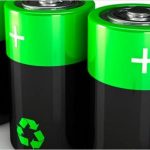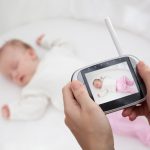
Researchers develop lithium-ion batteries that keep working even in sub-zero temperatures, showing potential for use in future space missions
Saturday, June 02, 2018 by David Williams
http://www.futuresciencenews.com/2018-06-02-researchers-develop-lithium-ion-batteries-that-keep-working-even-in-sub-zero-temperatures-showing-potential-for-use-in-future-space-missions.html

Lithium-ion batteries became the global standard for power that they are because of one simple reason: They just work. They’ve been used to power all sorts of things from consumer electronic gadgets to industrial-level devices. Now a team of researchers in China has managed to come up with a method that could completely remove one of its biggest weaknesses.
The technology behind lithium-ion batteries is not without shortcomings. One of its biggest flaws is the fact that it tends to perform rather poorly in colder environments. This is why you see similar warnings in most kinds of gadgets with lithium-ion batteries, which tell you to avoid using them in certain temperature levels, because they may not function properly. The National Aeronautics and Space Administration (NASA) knows this problem all too well, as it has to make sure that all of its equipment works in the sub-zero environments of outer space.
What the Chinese researchers did was to find a way of creating a hybrid lithium battery that doesn’t suffer from the same problems that normal ones do. In a new paper, they revealed the details of their successful attempt at doing so, where they switched out the materials used in the battery’s construction for those that allowed it to keep working despite sub-zero level coldness.
According to Dr. Yong-yao Xia, a co-author of the study, the hybrid battery they created has the potential to power future probes and satellites in space. “[The battery] provides the most promising potential for special field application, such as outer space or near outer-space exploration,” Xia explained in a statement to news website Inverse.com. “It [is] much colder on the opposite [side] of the Sun at the International Space Station, in which the temperature can reach as low as -157 [degrees Celsius].”
The hybrid battery is said to perform on a higher level than conventional ones, as it can work without issues even at temperatures as low as -94 degrees Fahrenheit (-70 degrees Celsius). This is a huge improvement over normal lithium batteries, which tend to lose more than 90 percent of their actual capacity at only -40 degrees Celsius.
According to the researchers, they managed to develop their hybrid battery by tweaking the design of standard lithium-ion batteries. What they did is take the conventional electrolyte used in standard batteries, in this case a compound known as ester, and replaced it with an ethyl acetate-based alternative that has a low freezing point. Next, they took the two oppositely charged electrodes in standard batteries and replaced them both with organic compounds.
For the positive electrode, the researchers went with polytriphenylamine (PTPAn) as an alternative, while the negative electrode was replaced with 1,4,5,8-naphthalenetetracarboxylic dianhydride (NTCDA). These combined with the new electrolyte material gave their battery the ability to withstand sub-zero environments with ease.
Xia said in a statement that they will continue working on improving their hybrid battery tech, particularly to make it ready for use out in space. “At current stage, the obtained results are limited at the laboratory-level,” the researcher said. “Further investigation on electrolyte with much wide electrochemical window… should still be carried out to improve the charge [and] discharge performance at low temperature.”
Xia underlined the fact that even though their creation still has a low specific energy output, it has certainly shown great potential as an instrumental part of future field applications. Once they perfect this new technology, it could likely make up the majority of batteries used in space and similar harsh environments.
Find out other ways science is being used to improve battery technology at Power.news.
Sources include:
Tagged Under: Tags: battery, electrolytes, future science, future tech, lithium batteries, lithium ion, Mars, Moon, research, science and technology, Space, space exploration, space flight, space missions





